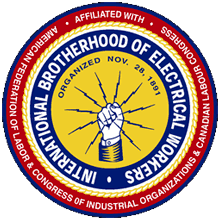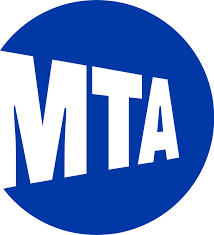Compiled by Steven Wishnia and Neal Tepel
Bay Area Rapid Transit Workers Strike
Bay Area Rapid Transit System workers went on strike July 1 for the first time in 16 years, as almost 2,400 members of the Amalgamated Transit Union and the Service Employees International Union walked out after negotiations broke down. The workers have gone five years without a raise and gave BART $100 million in concessions in 2009 to help the system weather the recession. They’re now seeking a 23 percent raise over the next four years. Management is offering 8 percent, but only if ridership increases, and those raises would be reduced by larger deductions for health insurance and pensions. Read More
Oakland City Services Halted by One-Day Strike
The BART strike wasn’t the only one in Oakland July 1: More than 2,400 city employees went on strike for the day, and most city services stopped. Service Employees International Union Local 1021 executive director Pete Castelli said Oakland’s workers have been frustrated by “watching the banks recover” while they’re asked for more concessions. The striking unions also emphasized that they are fighting budget cuts not just to keep their jobs, but to preserve essential services for city residents. Read More
Detroit Emergency Manager Terminates Two Union Contracts
Detroit “emergency manager” Kevyn Orr has terminated collective bargaining agreements with two of the more than 40 unions representing city workers. Orr informed the American Federation of State, County and Municipal Employees and the Detroit Police Lieutenants and Sergeants Association on June 25 that their contracts would not be continued after they expire on July 6. The emergency manager, given near-dictatorial powers over the struggling city’s finances by Governor Rick Snyder, said it’s possible he would agree to new union contracts in the future. Read More
Supreme Court Agrees to Hear Challenge to Neutrality Agreements
The U.S. Supreme Court in late June announced it will hear an appeal of a lower-court ruling invalidating a “neutrality” agreement, in which an employer agrees not to actively oppose union organizing and both sides agree not to intimidate workers. Last year, responding to a Florida casino worker’s lawsuit backed by the National Right to Work Legal Defense Foundation, the 11th Circuit U.S. Court of Appeals ruled that such agreements constituted “bribery” under the Taft-Hartley Act. UNITE HERE, the union involved, called that reasoning “implausible,” because “no employer would think to bribe a union by making it easier for the union to organize,” but many union supporters fear that the Court’s pro-corporate faction might find a way to create legal barriers to organizing. Read More
NLRB Says Social Media ‘Griping’ Not Protected
The National Labor Relations Board says employers can’t retaliate against workers for some things they say on social media—but simple “griping” isn’t protected. A memo from a board lawyer upheld the dismissal of a health-care clerical worker after she posted complaints about a possible new boss on Facebook. The memo said that under the National Labor Relations Act, complaints about work intended “to initiate or to induce or prepare for group action” qualify as protected speech, but just complaining isn’t. Read More
UNITE HERE, Hyatt Reach Tentative Deal
UNITE HERE and Hyatt Hotels Corp. reached a tentative settlement July 1 that will end a four-year boycott of the hotel chain. If the about 5,000 workers ratify the deal, it will give them raises averaging about 4 percent a year until 2018, and they’ll also get wage increases retroactive to 2009. The agreement covers workers in Chicago, the company's home base, as well as San Francisco, Honolulu, and Los Angeles. Read More
Teamsters Approve UPS Contract
Members of the International Brotherhood of Teamsters narrowly approved a five-year contract with United Parcel Service June 26. The contract, which covers about 235,000 full-time and part-time workers, got about 53 percent of the vote. The union said it would raise starting pay for full-time workers from $16.10 an hour to $18.75. However, a number of locals rejected side agreements, primarily one that would move about 140,000 workers to a more costly health-insurance plan. Read More
Machinists, Painters Strike Daimler Trucks’ Oregon Plant
Members of Machinists Lodge 1005 at Daimler Trucks North America’s plant in Portland, Oregon went on strike July 1 after voting down a contract offer. The 520 machinists were joined by 68 members of Sign Painters and Paint Makers Local 1094 later that day, and two other unions that accepted contracts said they wouldn’t cross picket lines. Daimler opened negotiations by proposing a $4-an-hour pay cut, and its last offer would have eliminated health benefits for retirees. Lodge 1005 members wore T-shirts that said, “The concession stand is closed.” Read More
Service Workers Strike Again at Reagan Federal Building
Dozens of food and other service workers at the Ronald Reagan federal office building in Washington staged a one-day strike July 2. The workers, employed by federally hired private contractors, charge that they have been the victims of “wage rates under the federal minimum wage, 60 to 70-hour workweeks without payment of overtime, and use of false or deceptive record-keeping to conceal these violations from employees and public authorities.” Other federally contracted service workers in Washington staged a similar strike in May. Good Jobs Nation, the labor group trying to organize them, says federal contractors employ more low-wage workers than McDonald’s and Walmart combined. Read More
How Temp Workers Are Getting Crushed
Temporary workers are a rapidly growing and often ill-treated and illegally underpaid segment of the economy. “We’re seeing just more and more industries using business models that attempt to change the employment relationship or obscure the employment relationship,” said Labor Department official Mary Beth Maxwell. Many companies, from Amazon to Walmart, hire temps through third parties to avoid responsibility for workers’ compensation claims and unemployment taxes, and to block unionization—and of course, temps don’t get sick days, vacation, or job security. Temporary work is so prevalent in some areas—such as Memphis, California’s Inland Empire, and some Chicago suburbs—that they have been nicknamed “temp towns.” Read More



